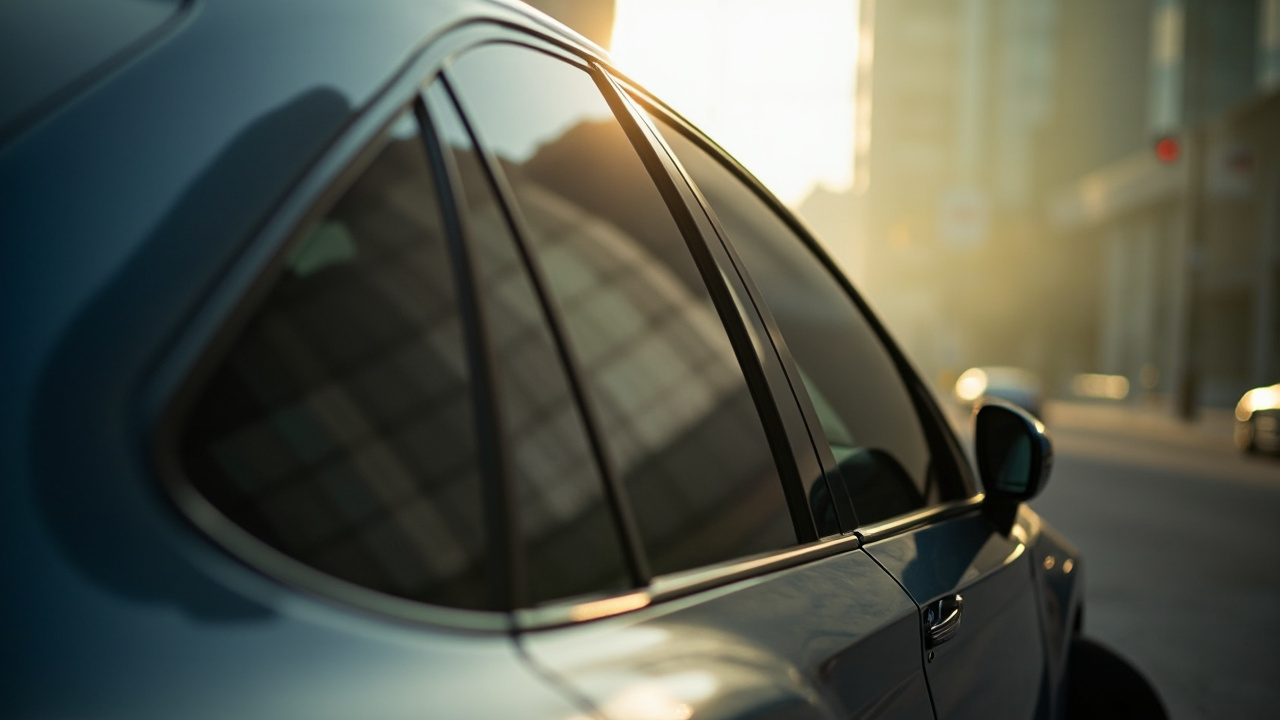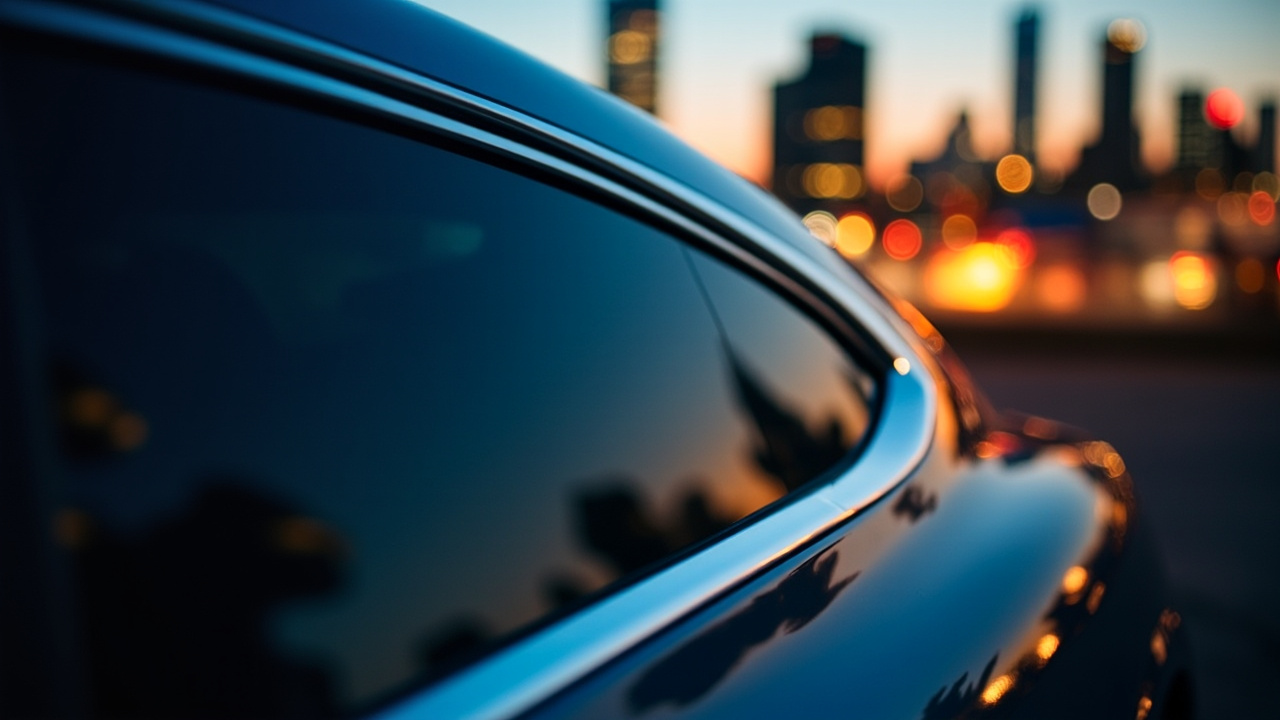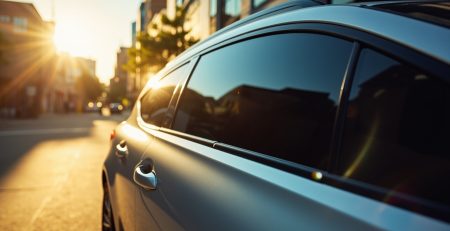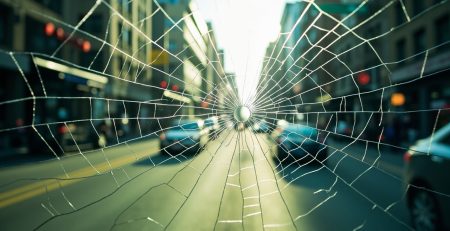Is Window Tinting Right For Your Car?
So, you’re thinking about window tinting for your car. It’s a popular upgrade, and for good reason. It looks sharp, and it can make your ride a lot more comfortable, especially here in Houston where the sun really beats down. But is it the right move for you? Let’s break it down.
Imagine your car sitting out in the Texas heat all day. When you get in, it’s like stepping into an oven, right?
Window tinting can help with that. It’s not just about looking cool, though that’s definitely a perk. It’s about making your drive more pleasant and protecting your car’s interior from the sun’s harsh rays.
But like anything, there are things to consider. There are different types of tints, varying levels of darkness, and rules to follow. We’ll go through all of it so you can make a smart decision for your vehicle and your needs.
The Cooling Factor – Heat Rejection
One of the biggest reasons people tint their windows is to keep the heat out. On a scorching Houston day, the temperature inside your car can climb way higher than the temperature outside. Window tint acts like sunglasses for your car.
The tint film has special materials that reflect a lot of the sun’s heat away from your car. This means your air conditioner doesn’t have to work as hard to keep things cool. Think about it: less strain on your AC means it might last longer and you might save a bit on gas.
This isn’t just about comfort, though that’s a huge part of it. Keeping the interior cooler also helps protect your dashboard, seats, and other plastic parts from fading and cracking over time due to constant sun exposure.
UV Protection is Saving Your Skin and Your Car
That same sun that heats up your car also blasts it with ultraviolet (UV) rays. These rays are invisible but they can cause damage. They’re the main reason your car’s interior can fade and crack over the years.
But UV rays aren’t just bad for your upholstery. They’re also bad for you. Even with tinted windows, you’re still exposed to some UV radiation when you drive. Most quality window tints block a massive amount of these harmful rays, often 99% or more.
So, getting your windows tinted is like putting on sunscreen for your car and for yourself. It’s a simple way to add a layer of protection against sun damage, both to the things inside your car and to your skin as you cruise around Houston.
Privacy and Security
You know how sometimes people can see everything inside your car when they walk by? Tinted windows offer a nice bit of privacy. It’s not about hiding anything nefarious, but more about keeping your belongings out of sight and making your car feel like a more personal space.
Whether it’s the groceries you just picked up, a laptop bag, or even just your personal items, a moderate tint can make them less of a target for potential thieves. It makes your car less of an open invitation.
Plus, there’s a certain aesthetic appeal. Tinted windows often give a car a sleeker, more finished look. It’s a subtle change that can really enhance the overall appearance of your vehicle.

The Safety Side
This is a big one, especially if you’re concerned about safety. Most window tint films are made of durable polyester. When applied to your car windows, they create an extra layer over the glass.
What does this mean in practical terms? Well, if your window were to break – due to an accident or an attempted break-in – the tint film can help hold the shattered glass together. It acts like a glue, preventing shards from flying everywhere.
This can significantly reduce the risk of serious injury from flying glass, both for you and your passengers. It’s a layer of protection you might not think about until you need it, but it’s a valuable benefit of quality window tinting.
Understanding Different Tint Types
Not all window tints are created equal. There are a few main types you’ll encounter, and they differ mainly in how they block heat and light.
The Main Players
- Dyed Film: This is usually the most affordable option. The tint color comes from a dye added to the film. It helps with glare and offers a little privacy, but it doesn’t do a great job of blocking heat or UV rays. It can also fade over time.
- Carbon Film: This type uses carbon particles. It’s better at blocking heat and UV rays than dyed film. It also doesn’t typically fade or turn purple, which can happen with cheaper tints. It’s a solid, mid-range choice.
- Ceramic Film: This is the top tier. Ceramic window tints use tiny ceramic particles that are invisible to the eye. They are excellent at rejecting heat and blocking UV rays without darkening the windows too much. They’re also durable and won’t interfere with electronic signals like GPS or radio.
For a place like Houston, where the sun is intense, ceramic or high-quality carbon tints often offer the best performance when it comes to heat rejection and UV protection.
What About Texas Tint Laws?
This is really important. You want your car to look good and be protected, but you also need to follow the law. Texas has specific rules about how dark your window tint can be.
For the front windshield, tint is generally not allowed except for a strip at the very top (usually the AS-1 line). For the side and rear windows, there are limits on how dark the tint can be, measured by something called Visible Light Transmission (VLT).
Here’s a general breakdown:
- Driver and Passenger Side Front Windows: Typically, tint is limited to 25% VLT. This means at least 25% of the light must be able to pass through.
- Rear Windshield and Other Rear Windows: The tint can be darker, often down to 5% VLT.
It’s crucial to get this right. Cops can issue tickets for tint that’s too dark. Uni Auto Glass Houston knows these laws inside and out and can help you choose a tint percentage that looks good and keeps you compliant with Texas regulations.
Always check the latest Texas Department of Public Safety guidelines or ask your auto glass professional for the most current information. Rules can sometimes change, and it’s best to stay updated.
Installation Matters
Even the best window tint film won’t perform well or look good if it’s installed improperly. This isn’t a DIY job you want to tackle without serious experience, especially not in Houston’s humidity.
Professional installers have the tools, the clean environment, and the expertise to apply the tint smoothly. They know how to cut the film precisely to fit your windows without gaps or bubbles. They understand how to heat-mold the film to curves and avoid those annoying wrinkles.
Bad installation can lead to:
- Bubbles and peeling edges
- Scratches on the tint or glass
- Uneven or blotchy color
- Tint that doesn’t last
- Reduced visibility
When you choose Uni Auto Glass Houston, you’re getting experienced professionals who pride themselves on quality work. We treat your vehicle with care, ensuring a flawless finish and a tint job that lasts.
When to Consider Tinting?
There are a few key times when window tinting makes a lot of sense, especially for us Houstonians.
Prime Times to Tint
- New Vehicle Purchase: If you just got a new car, it’s the perfect time to get the tint applied before dirt and wear become issues. You can often have it done right after you buy it.
- Interior Showing Signs of Wear: If you’re noticing that your dashboard is starting to look faded or your seats are getting bleached by the sun, it’s a clear sign you need better UV protection. Tinting can halt or slow this damage.
- Discomfort Being in Your Car: If your car interior consistently feels like a hot box, even after the AC has run for a while, tint can make a huge difference in cabin temperature.
- Preparing to Sell: Tint can make a car look more attractive and protect its interior, adding value if you plan to sell it down the line.
Think of it as an investment in comfort, protection, and the overall look of your vehicle. It’s especially beneficial in a sunny climate like ours.
Tinting for Commercial Vehicles?
It’s not just personal cars that benefit from window tinting. Many commercial vehicles, from delivery vans to semi-trucks and RVs, can also see significant advantages.
For fleets, the consistent heat rejection can lead to lower fuel costs because the AC doesn’t have to work as hard. This translates to savings across multiple vehicles. Plus, protecting the interiors of these vehicles means they hold their value longer, which is important for any business.
For RVs and larger vehicles, especially those with extensive glass surfaces like bus windows, the comfort factor is huge. Long hauls become much more enjoyable when the cabin stays cooler and glare is reduced. It can also add a layer of privacy for passengers.
Uni Auto Glass Houston has the experience to handle tinting for all types of vehicles, including large commercial fleets and recreational vehicles. We understand the unique needs of each type of vehicle and can provide durable, high-quality tinting solutions.

Making Your Decision with Uni Auto Glass
So, is window tinting for you?
Weigh the benefits: better heat rejection, UV protection, increased privacy, and enhanced safety.
Consider the practicalities: choosing the right type of film and ensuring it’s installed by professionals who know Texas tint laws.
At Uni Auto Glass Houston, we’re experts in auto glass and window tinting. We’ve been serving the Houston area since 1994, so we know what it takes to keep your vehicle looking great and protected from our Texas sun. We work with high-quality films and provide expert installation on all makes and models, from small cars to large commercial vehicles.
Still have questions? Want to see tint samples or get a personalized recommendation for your car?
We’re here to help you make the best choice. Give us a call or stop by Uni Auto Glass Houston today. Let’s get your windows looking sharp and feeling comfortable.












